THE minister of state at the FCDO (Foreign, Commonwealth and Development Office), Lord Tariq Ahmad, has spoken to Eastern Eye about his recent trip to India, during which he tried to negotiate deals on such issues as climate change, pharmaceuticals, cyber and education with the prosperous states of Tamil Nadu and Gujarat.
Separately, negotiations continue for a bilateral Free Trade Agreement (FTA) between the UK and India.
Meanwhile, the British government is being pragmatic and making direct approaches to a number of Indian states.
Before he met Eastern Eye in his office at the FCDO, Ahmad summed up what he had achieved recently in India in a message on X, formerly Twitter: “Over a 3 day visit to India, I visited 2 states, signed 23 MoUs [Memorandum of Understanding] between the UK and India, gave 5 speeches, 4 TV interviews and had over 30 meetings with state and federal leaders.
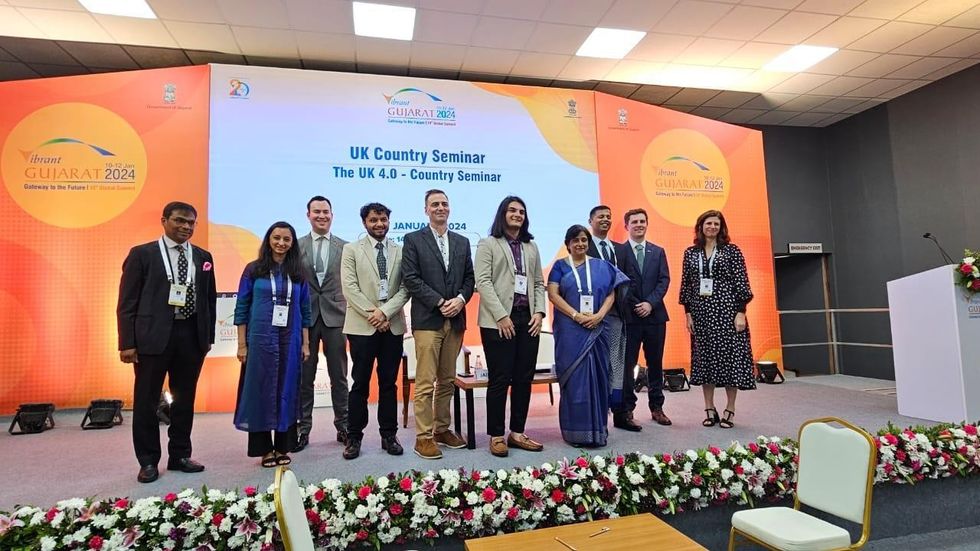
“ In Gujarat, Narendra Modi’s home state, he also met the Indian prime minister.
Ahmad is generally considered the “minister for India” at the FCDO, though he has responsibility for “South Asia, Middle East and North Africa, the UN and Human rights”. He is also the British prime minister’s “Special Envoy for Preventing Sexual Violence”.
Before he left for India, the British High Commission in Delhi said the minister would attend the Tamil Nadu Global Investors Meet in Chennai where he would “launch a heat mitigation project alongside the State Planning Commission. The project will provide recommendations to the government of Tamil Nadu to address extreme heat-related deaths and the loss of vital ecosystems.”
With the Tamil Nadu Department of Environment and Climate Change, he would also launch “an electronic and battery waste management project, which will develop a plan to reduce battery waste”.
He would then move on to attend the biennial investors’ summit, Vibrant Gujarat, for the signing of “an MoU between the UK’s Abertay University and India’s École Intuit Lab. The partnership agreement will see teaching, research and innovation expertise shared between the two organisations.”
The statement added: “Strengthening the UK-India relationship is a key pillar of the UK’s long-term foreign policy.”
Speaking to Eastern Eye, Ahmad said: “It was a pleasure to be back in India. It’s not (just) talking about how important India is – it’s also about the doing.”
He talked about “the importance of our direct bilateral relationship” between governments. “But we also recognise states within India, and the need to strengthen our relationships within that.”
On a previous trip he visited Punjab. “Last year, I had an opportunity to visit Rajasthan as well,” he said. “This time around, I went to Tamil Nadu and Gujarat. Tamil Nadu was the big investment event, at which we had opportunity to sit down with the chief minister (MK Stalin) and others. We’ve had a strong collaboration with Tamil Nadu.”
One MoU was on waste management. Ahmad also attended the Vibrant Gujarat summit after a break of a few years when he had been unable to go because of the pandemic.
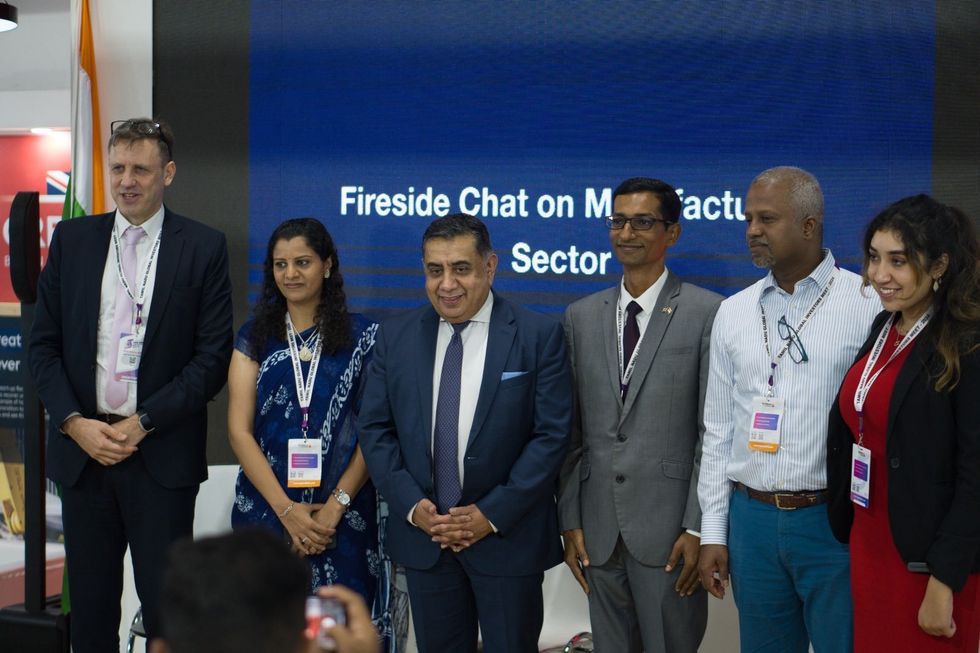
“It was also a great opportunity to engage directly with the state leaders, including the chief minister (Bhupendrabhai Patel). Prime minister Modi was there, as well as my dear friend, foreign minister (Subrahmanyam) Jaishankar. So, we had a very good opportunity to exchange views. All in all, it was very productive and very intensive.
“There were meetings with business, there were meetings with different political leaders. There was also an international dimension to it – the president of the UAE (Mohamed bin Zayed Al Nahyan) was at the Gujarat conference.”
Ahmad referred to the health of British Indian trade. “We currently do about £38.3 billion on bilateral trade. And if you translate that in dollars, we’re talking about $50bn last year. That has increased by about $10bn (in recent years).”
He spoke of “the tremendous link-up during the Covid pandemic, which really demonstrated the strength of our peopleto-people links. At at a time when we needed India’s help in the early days of Covid, India stood by us.”
He was referring to the time when India supplied Covid vaccines to the UK for a period. The research was done by AstraZeneca and Oxford University, with the vaccines manufactured in bulk by the Serum Institute of India.
Ahmad added: “The rest is history, as they say. But, equally, when India needed oxygen containers, it was the strength of our diaspora that within 48 hours, we turned around and provided oxygen capacity to India. That is a real demonstration of the living bridge.
“Now we have incredible collaboration on areas of trade, which cover issues of climate. I met a couple of pharmaceutical companies who have UK interests.”
Britain wants to expand its manufacturing base. Ahmad said, “We’re now the eighth-largest manufacturing country in the world, ahead of France. And prime minister (Rishi) Sunak also announced in November last year, a new facility to attract greater manufacturing capacity to the UK across eight sectors, which is tantamount to about £4.3bn of support.
“We want to encourage countries to be investing in the UK as much as we’re encouraging countries to look towards India – cyber is an area of major cooperation. And we signed a number of MoUs with the two states which covered a range of collaboration on issues of cyber, climate, but also private sector to private sector, and students,”
On the progress made on a bilateral trade agreement, the minister said: “To me, the FTA is an important natural progression on what’s being achieved already, showing the strength of that relationship. And it’s underpinned – I can’t say it enough – by the people-to-people bridge. I had an opportunity to raise it with prime minister Modi as well.
“I know prime minister Sunak is very clear as well about the importance of getting a really quality FTA between India and the United Kingdom. We’ve got our directions from our respective prime ministers. I had an opportunity to discuss the FTA and the good progress on that with foreign minister Jaishankar.
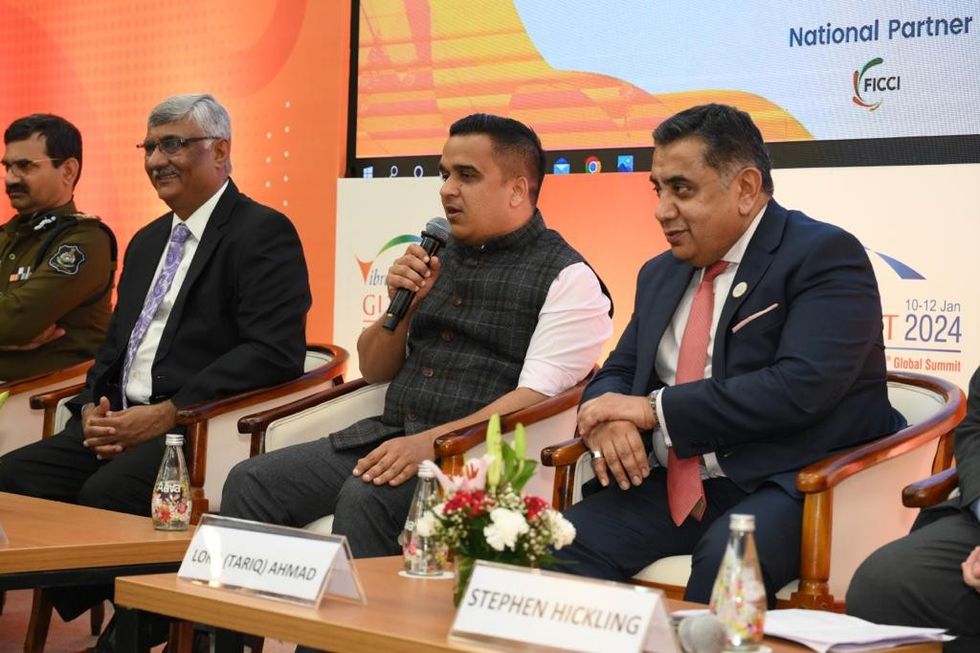
“But it does need to ensure that the momentum we’ve currently got is sustained. I don’t want to put a particular deadline. What’s important to us is get a quality Free Trade Agreement, which works for India and works for the UK, covering a variety of sectors.”
Many analysts feel that since a general election is to be held in India in April and May, and another due in Britain possibly by autumn 2024, the window for the FTA will close by spring of this year. There are differences between the two sides on migration and a more liberal visa regime for the Indian corporate sector.
Ahmad explained why Britain had directly approached individual Indian states: “Our approach is nuanced, it is strategic, but it is also recognising the inherent strengths of different states.
“They have incredible creativity in Tamil Nadu. I think by 2030, they’ve set themselves a target of $1 trillion in terms of their own capacity – and we want to be part of that. You see the real uniqueness of each state as well. The health sector provides a major area of collaboration.”
In addition, the minister talked of education and the universities present in both states, particularly in Tamil Nadu. He mentioned the institutions British universities have set up in India and the level of Indian students who are now present in the UK. “It shows another tie-up of a key sector between people to people in terms of education.”


















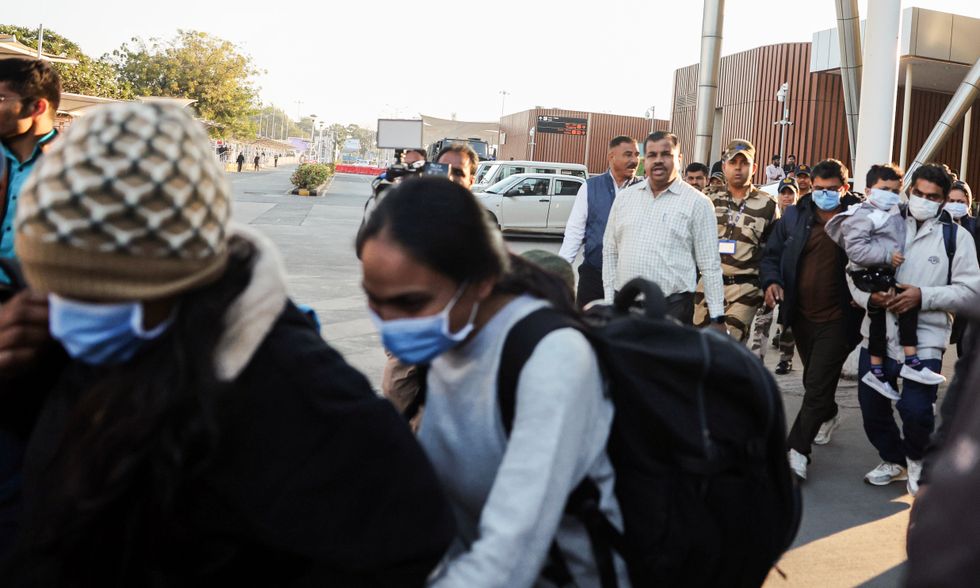 Indian immigrants who allegedly illegally migrated to US arrive in Ahmedabad. (ANI Photo)
Indian immigrants who allegedly illegally migrated to US arrive in Ahmedabad. (ANI Photo)

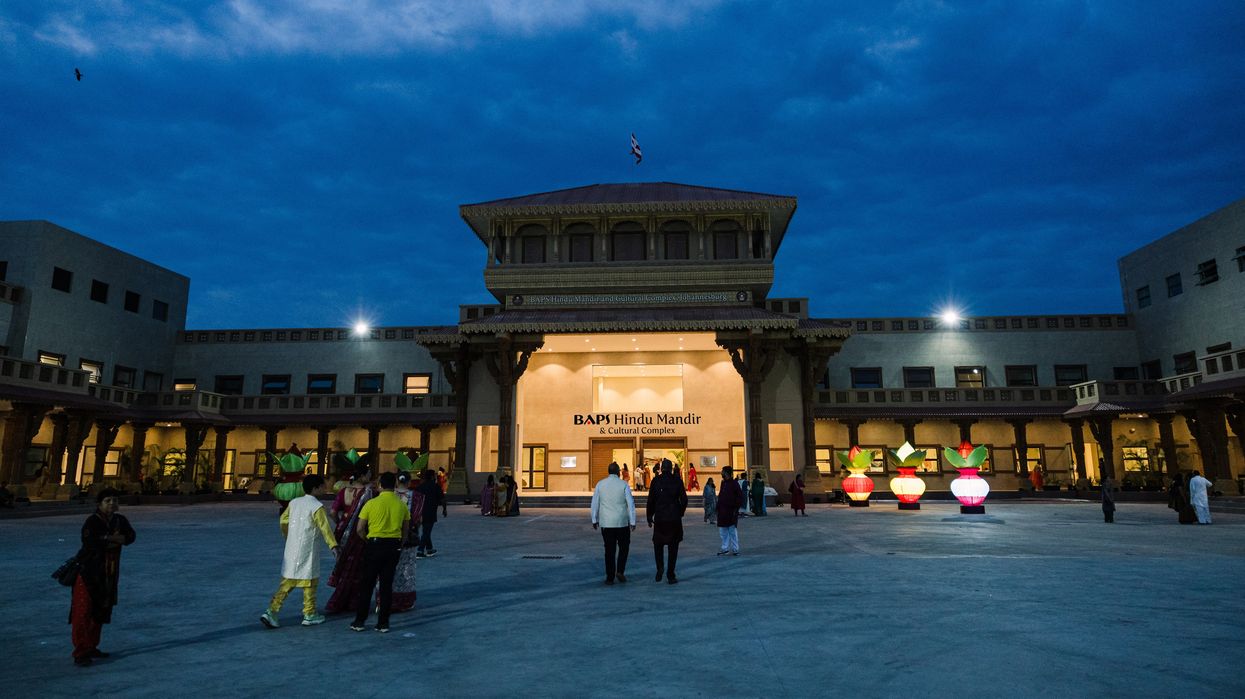
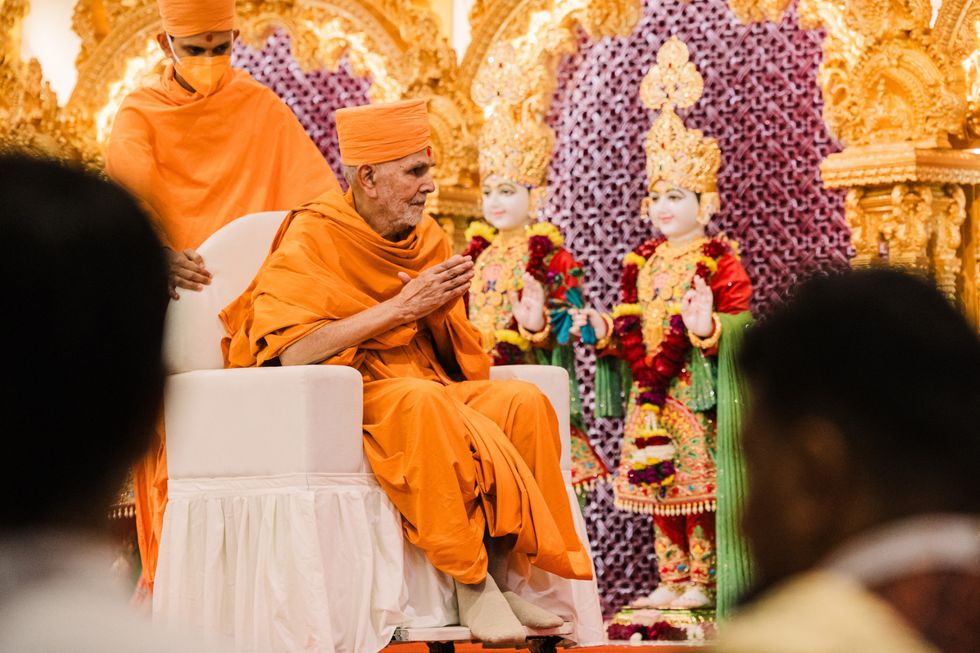 BAPS Hindu Mandir in Johannesburg
BAPS Hindu Mandir in Johannesburg